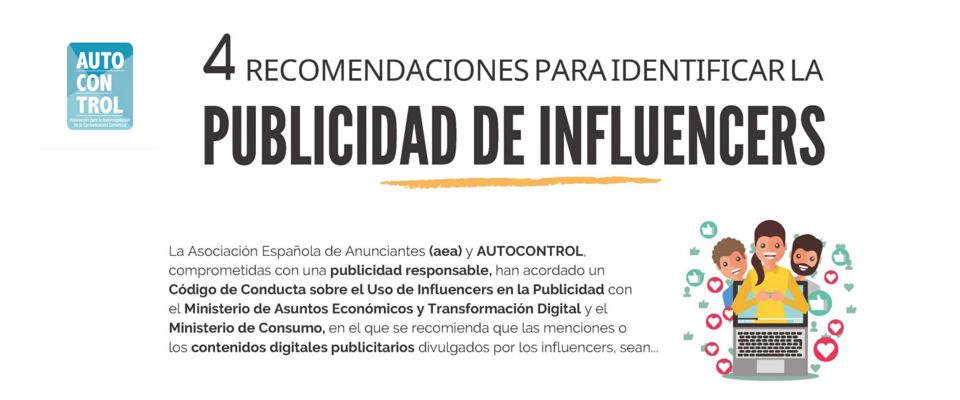“I will not allow injustice, no foul play, but if anyone is caught engaging in corruption, without me receiving a commission, we will put him up against the wall… And we will give the order to shoot!”
Groucho Marx in Duck Soup (1933)
Additional Information for U.S. Persons: USA FTC
In September 2020, a Danish “influencer” was sentenced to pay a fine of 60,000 kroner for surreptitious advertising practices. This person, with a large number of followers on Instagram, published 17 reviews (posts) from March 2017, to December 2018, which he tagged with the hashtags #Ad, #spons and #GAW. Despite this, the Consumer Ombudsman found that this practice was not sufficient for people to identify that it was an advertising message.
“Influencers have a responsibility to make it clear to their followers when it comes to advertising. The influencer in question failed to do so, and therefore violated the Marketing Act’s prohibition on surreptitious advertising.”
“As consumers, we must be able to trust that advertisements appear as advertisements. This is true on social media as well as in traditional media such as newspapers and magazines”. CHRISTINA TOFTEGAARD NIELSEN – FORBRUGEROMBUDSMAND →
As a result, in 2019, following an extensive social media investigation, the Consumer Ombudsman, Christina Toftegaard Nielsen, filed a complaint with the police, which led to the subsequent conviction.
In the case of Spain, the jurisprudence of the Supreme Court in this respect is extensive and peaceful and the fines can exceed 700,000 € in the case of television broadcasters: “Yo soy Bea”, “Operación Triunfo”, “Masterchef”, “Cuéntame cómo pasó”, “José Mota presenta”, “La que se avecina”, “Sálvame Naranja”, “Sálvame Deluxe”, “La Mañana”, “Objetivo Bienestar”, “El Hormiguero”, “Qué tiempo tan feliz” and a long etcetera that even involves the news programmes of many of the channels.
That covert advertising is not lawful anywhere in the world is a fact that should not escape anyone. For example in Spain, the law regarding surreptitious advertising is regulated in different rules, which ensure that both consumer rights and competition rights are respected.
– Article 18.2 of Law 7/2010 General Law on Audiovisual Communication. LAW →
– Article 9 of the General Advertising Law 1988. LAW →
– Article 26 of the Unfair Competition Act. LAW →
As far as Europe is concerned, both the Directives and the case law are clear:
“… surreptitious advertising” means the representation in words or pictures of goods, services, the name, the trade mark or the activities of a producer of goods or a provider of services in programmes when such representation is intended by the broadcaster to serve advertising and might mislead the public as to its nature. Such representation is considered to be intentional in particular if it is done in return for payment or for similar consideration” JUDGMENT OF THE COURT OF JUSTICE OF THE EU – CASE C-52/10 – REF. DIRECTIVE 89/552/EEC →
What is less clear is the extent to which liability for the unlawful act can be imputed. As regards those directly involved in the production and dissemination of advertising (advertiser, agency and media), the General Advertising Law, in accordance with Article 9, seems to make it clear that both the advertiser and the media are directly liable.
“The media shall clearly distinguish between claims made as part of their informative function and those made as mere advertising vehicles. Advertisers shall also unequivocally disclose the advertising nature of their advertisements”. ARTICLE 9 OF THE GENERAL LAW ON ADVERTISING OF 1988 →
But at the same time, Article 11 of the aforementioned law incorporates a principle of solidarity vis-à-vis injured third parties, whether the consumer or the competition (both the advertiser’s and the medium’s).
“Advertising contracts may not include clauses exempting, imputing or limiting the liability to third parties which the parties may incur as a result of the advertising”. ARTICLE 11 OF THE GENERAL ADVERTISING LAW OF 1988→
In this way, there is joint and several liability of the advertiser, the agency and the media, whereby the injured party could take action against any of the parties involved in the advertising activity. And it could even involve all the “members of the supply chain” who may have benefited from the unlawful advertising.
Given that Article 51.3 of the Draft Bill for the reform of the General Law for the Defence of the Rights of Consumers and Users (“TRLGDCU”) establishes that:
“… the liability of the co-perpetrators of the same infringement shall be independent and each shall be imposed the penalty corresponding to the infringement to the extent appropriate to his or her culpability and other personal circumstances. In particular, this shall be understood to include advertisers, agencies and advertising media with regard to infringements of subliminal or misleading advertising or advertising that infringes the provisions of the regulations on advertising of certain goods or services”.
The Association for the Self-Regulation of Marketing Communication (Self-Control) and the Asociación Española de Anunciantes (AEA), “anticipating”, made public the new “Code of Conduct on the use of influencers in advertising”.
New? But what part of the law did the champions of advertising ethics fail to understand? Let no one be fooled by a sweet proposal. This is NOT an altruistic exercise of social responsibility emanating from deep ethical convictions. It is a LEGAL OBLIGATION that affects us all.
Jaime Ávila Rodríguez de Mier
General Director of Recursos de Mercado
Published on 1o July 2021 by the magazine:






